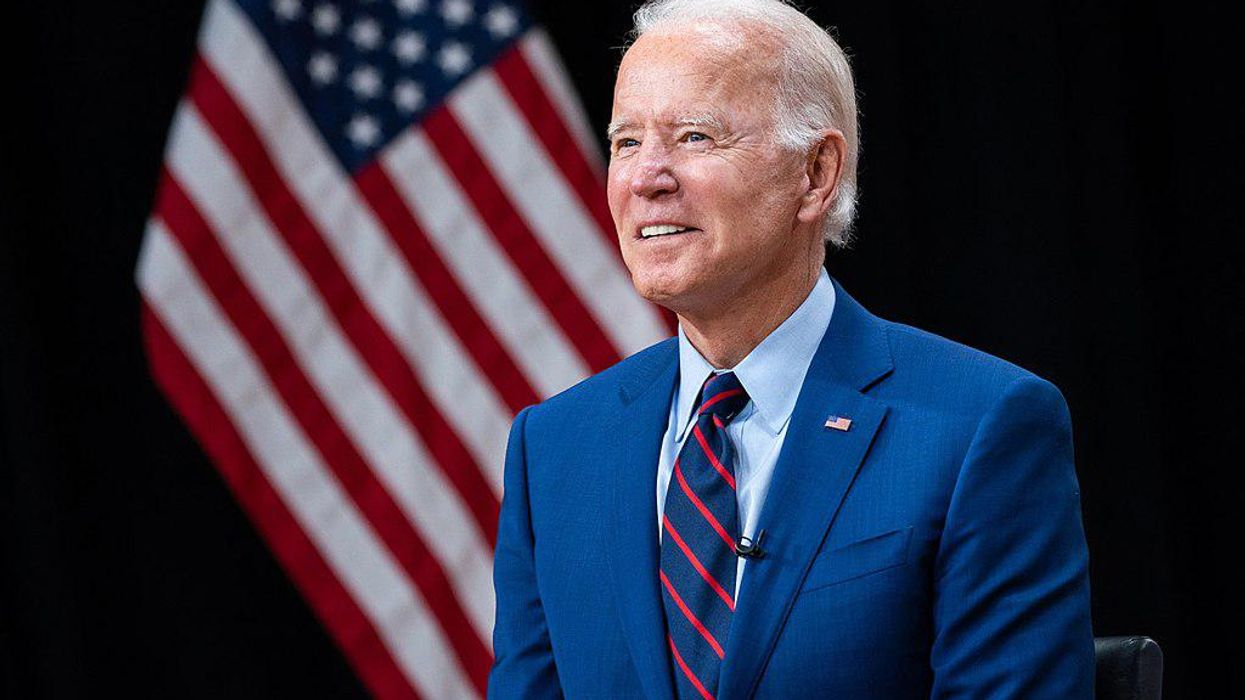The public isn’t 'skeptical' of Biden’s strong economic performance — just Republicans

It wasn’t long ago that the president made a pitch to a “skeptical public” about the impact of his administration’s policies on the US economy. That’s from a June AP report after Joe Biden delivered a major speech in Chicago during which he used, for the first time, the term “Bidenomics.”
“Biden said his administration’s efforts were sparking recovery after Republican policies had crushed America’s middle class,” the AP said. But, according to an Associated Press-NORC poll taken beforehand, “only one in three US adults approve of his economic leadership. That 34 percent figure is even lower than his overall approval rating of 41 percent.”
The AP report isn’t alone. It’s representative of the kind of reporting that we saw throughout 2023 according to which there was an “inexplicable” and, allegedly for Biden, politically vexing tension between what he said about the economy – falling prices, cooling inflation, rising wages and historically low unemployment – and what most people were feeling.
This genre of reporting accumulated into a news narrative so big that it has become the lens through which much of the Washington press corps now views the president’s reelection campaign. Biden says the economy is booming, but how is he going to “handle” negative perceptions of it? Some have gone so far as to say that the more he talks up the economy in the face of “public skepticism,” the more he risks talking down to people.
Fast-forward to yesterday and we can see that the president wasn’t just fluffing his own policies. He was taking credit for actual accomplishments, though he couldn’t have known the extent of them at the time. Reporting on the latest economic data released Thursday, Bloomberg said the economy grew by a stunning 3.2 percent last year, continuing “its seemingly unstoppable ascent out of the pandemic recession and its inflationary aftermath, further burying wrong calls of recession by posting fourth-quarter growth numbers that crushed forecasts” (my italics).
The Bloomberg report went on to say that “cooling inflation has fueled consumer spending amid continued, near-record low unemployment and rising wages.” Moreover, “the economy’s main growth engine — personal spending — rose at a 2.8 percent rate while business investment and housing also helped fuel the larger-than-expected advance.”
In other words, Bidenomics is working.
Indeed, last year was “miraculous,” wrote Times columnist Paul Krugman, who is also a Nobel Prize-winning economist, on Twitter. “High growth with inflation falling all the way back to the Fed's target [and] rising real wages. And here, according to YouGov, is how Republicans saw it.”
It’s here that you’ll find the source of that alleged tension between what the president says about the economy and what “a skeptical public” is feeling. It’s here that you’ll find the true source of the narrative lens through which the Washington press corps has decided to view Biden’s reelection campaign. It’s here that Paul Krugman posted a picture.
The picture was a screenshot of aggregate polling taken by YouGov. Since 2009, the polling firm has been asking people every week: “Overall, do you think the economy is getting better or worse?” And while most people seem to have tried giving a good-faith assessment of the economy, and Biden’s handling of it, guess who hasn’t? Republicans.
Since 2009, Republican respondents to YouGov’s tracking poll have said that the economy is bad whenever a Democrat was in the White House. This is clear from the data. You’d have to work to avoid seeing it. No matter what Barack Obama did, the economy was bad. No matter what Biden does, it’s bad. The only exception – it’s right there in the picture – is when Donald Trump was president. There’s a literal line straight down, in 2016, from the economy is worse to the economy is better. The inverse is also true – an unmistakable straight line up – from 2020 to the present.
YouGov’s survey question isn’t unique. Whenever other polling firms have asked respondents what they think of the economy, the Republicans among them give answers reflective of their feelings toward the president. If he’s a Democrat, it’s bad. If not, it’s good. No other cohort behaves like this. The data shows Democrats giving mixed answers. Ditto for independents. Only Republicans act with such partisan conformity.
Importantly, members of the Washington press corps have known this has been happening since 2009. Reporters have known that Republican responses to polling questions have warped the average of those polls so that, in this case, the outcome has been, since the summer, that only a “third of Americans” approve of the president’s handling of the economy.
They have known this was happening – it’s right there in the data, since 2009 – but they continue to frame this reporting genre as if the truth isn’t what it is, namely that the president isn’t facing a “skeptical public” so much as he’s facing skeptical Republicans, who are benefiting the impact of the president’s economic policies but refuse to credit him for it.
Fortunately, the president hasn’t let this deter him.
He’s leaning into “Bidenomics,” as he should.


